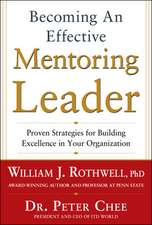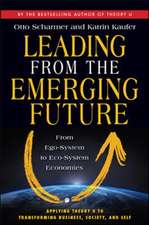Analytical Decision-Making Methods for Evaluating Sustainable Transport in European Corridors: SxI - Springer for Innovation / SxI - Springer per l'Innovazione, cartea 11
Editat de Isabella M. Lamien Limba Engleză Paperback – 7 aug 2014
In the light of this, the book’s main objectives are:
- To define the problem by analyzing the key features, which include freight and passenger transport policies and issues; the territorial context, with its geographical, social, economic and cultural aspects; the plurality of subjects with different aims and resources and the lack of homogeneous information.
- To illustrate assessment models and evaluation frameworks (MCDA; Discrete Choice Analysis; Collaborative Assessments; Geovisualization Technologies) in theoretical terms and by the use of case studies.
Preț: 388.34 lei
Nou
Puncte Express: 583
Preț estimativ în valută:
74.31€ • 77.43$ • 61.53£
74.31€ • 77.43$ • 61.53£
Carte tipărită la comandă
Livrare economică 03-17 aprilie
Preluare comenzi: 021 569.72.76
Specificații
ISBN-13: 9783319047850
ISBN-10: 331904785X
Pagini: 296
Ilustrații: XXVII, 269 p. 87 illus., 50 illus. in color.
Dimensiuni: 155 x 235 x 20 mm
Greutate: 0.42 kg
Ediția:2014
Editura: Springer International Publishing
Colecția Springer
Seria SxI - Springer for Innovation / SxI - Springer per l'Innovazione
Locul publicării:Cham, Switzerland
ISBN-10: 331904785X
Pagini: 296
Ilustrații: XXVII, 269 p. 87 illus., 50 illus. in color.
Dimensiuni: 155 x 235 x 20 mm
Greutate: 0.42 kg
Ediția:2014
Editura: Springer International Publishing
Colecția Springer
Seria SxI - Springer for Innovation / SxI - Springer per l'Innovazione
Locul publicării:Cham, Switzerland
Public țintă
ResearchCuprins
1 M. Arnone, T. Delmastro and L. Saporito: Passenger mobility: new trends.- 2 G. de Jong and E. Kroes: Freight transport: main issues.- 3 B. Musso: The evolution of maritime container transportation.- 4 P. Witte and T. Spit: Sectoral drawbacks in transport. Towards a new analytical framework on European transport corridors.- 5 B. Scholl: Integrated Spatial and Infrastructural Development: the need for adequate methods and spatial strategies for collaborative action and decision-making.- 6 I. M. Lami: Evaluation tools to support decision-making process related to European Corridors.- 7 H. Drewello: Transport policy and regional development. The economic impact of regional accessibility on economic sectors.- 8 G. de Jong and E. Kroes: Discrete choice analysis.- 9 I. Tosoni and F. Guenther: Collaborative assessment processes.- 10 E. Masala and S. Pensa: Visualisation: an approach to knowledge building.- 11 F. Abastante, M. Bottero, F. Guenther, I. M. Lami, E. Masala, S. Pensa and I. Tosoni: An integrated approach for supporting the evaluation of transport scenarios: the area of Bellinzona (CH).- 12 F. Abastante, F. Guenther, I. M. Lami, E. Masala, S. Pensa and I. Tosoni: Analytic Network Process, InVITO and Strategic assessment: a tool-box for the evaluation of Corridor 24 spatial development strategies.- 13 M. Arnone, G. de Jong, T. Delmastro and D. Inaudi: A conjoint analysis exercise to assess quality attributes in freight transport. Outcomes from a survey among logistics managers of manufacturing firms in North West Italy.
Notă biografică
Isabella M. Lami, Ph.D, is Assistant Professor of Planning Evaluation and Project Appraisal at the Politecnico of Turin and a research collaborator at SiTI (Higher Institute on Territorial Systems for Innovation). She has expertise in multicriteria analysis methods and spatial decision processes within the context of territorial transformations, particularly in connection with large transport infrastructure. She was coordinator of the transnational network Urban Planning Systems in Europe - Urbax2, involving 15 partners from universities and public administrations in 9 different European countries, within the Leonardo da Vinci programme. She was one of the coordinator of the activities regarding the collaborative assessment process and decision making on the Corridor 24 development, within the European Project "Code24" - this project was funded under the Strategic Initiatives Framework of the INTERREG IVB NWE programme (www.code-24.eu).
Dr. Lami has published books and papers on both national and international scientific journals, and received several awards for her work. In 2009, the paper (with Bottero) Sustainable mobility and urban planning: the application of the Analytic Network Process for the assessment of different transport scenarios was awarded the Best Paper prize at the 2nd International Conference on Whole Life Urban Sustainability and its Assessment held in Loughborough. In 2007, her edited book Genova: il porto oltre l'Appennino. Ipotesi di sviluppo del nodo portuale, Celid, Torino, won the 7th edition of the prize Trasporti & Cultura, section A, "Works that derive from specialized research, also by Universities". In 2005, the Urbax2 project she coordinated was chosen as one of Europe’s 50 Best Practices during 2000-2005, and was featured in the European Commission publication, 50 success stories - Leonardo da Vinci innovation projects contributing to the Copenhagen process - Linking policy topractice (four projects were selected in Italy).
Dr. Lami has published books and papers on both national and international scientific journals, and received several awards for her work. In 2009, the paper (with Bottero) Sustainable mobility and urban planning: the application of the Analytic Network Process for the assessment of different transport scenarios was awarded the Best Paper prize at the 2nd International Conference on Whole Life Urban Sustainability and its Assessment held in Loughborough. In 2007, her edited book Genova: il porto oltre l'Appennino. Ipotesi di sviluppo del nodo portuale, Celid, Torino, won the 7th edition of the prize Trasporti & Cultura, section A, "Works that derive from specialized research, also by Universities". In 2005, the Urbax2 project she coordinated was chosen as one of Europe’s 50 Best Practices during 2000-2005, and was featured in the European Commission publication, 50 success stories - Leonardo da Vinci innovation projects contributing to the Copenhagen process - Linking policy topractice (four projects were selected in Italy).
Textul de pe ultima copertă
Eurocorridors are characterized by intensive transport flows and dynamic patterns of establishment and household locations. They are also considered the backbones of powerful spatial and economic forces in the areas that connect urban regions. One of the main difficulties in the spatial planning of eurocorridors has been the need to engage in different types of collective action. Such an approach can be extremely challenging in practice, useful to researchers in the field and to professionals as well.
In the light of this, the book’s main objectives are:
- To define the problem by analyzing the key features, which include freight and passenger transport policies and issues; the territorial context, with its geographical, social, economic and cultural aspects; the plurality of subjects with different aims and resources and the lack of homogeneous information.
- To illustrate assessment models and evaluation frameworks (MCDA; Discrete Choice Analysis; Collaborative Assessments; Geovisualization Technologies) in theoretical terms and by the use of case studies.
In the light of this, the book’s main objectives are:
- To define the problem by analyzing the key features, which include freight and passenger transport policies and issues; the territorial context, with its geographical, social, economic and cultural aspects; the plurality of subjects with different aims and resources and the lack of homogeneous information.
- To illustrate assessment models and evaluation frameworks (MCDA; Discrete Choice Analysis; Collaborative Assessments; Geovisualization Technologies) in theoretical terms and by the use of case studies.
Caracteristici
Provides an accessible approach to a complex subject, paying particular attention to actual decision-making dynamics Illustrates how mathematical tools and visualizations together can support mutual understanding between the stakeholders in situ Presents up-to-date theories and examples for a range of methods from different disciplines, including transport modeling, demand modeling, spatial development, land policy, project appraisal, geovisualization and information visualization Includes supplementary material: sn.pub/extras



























